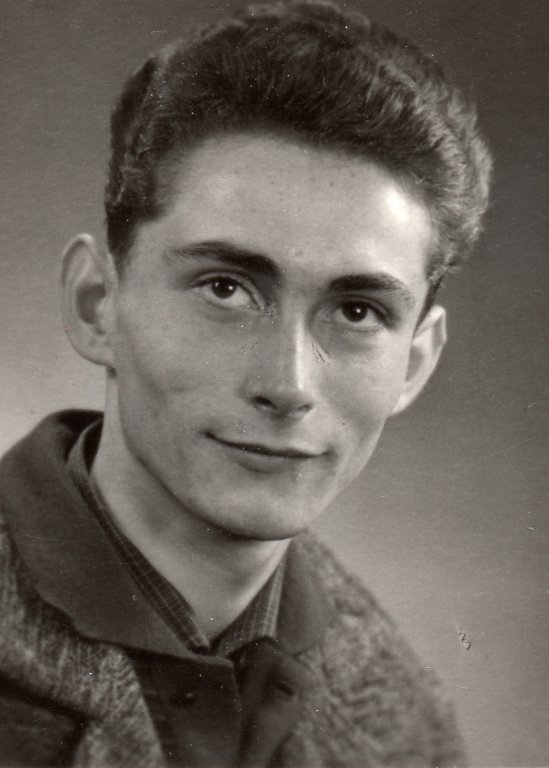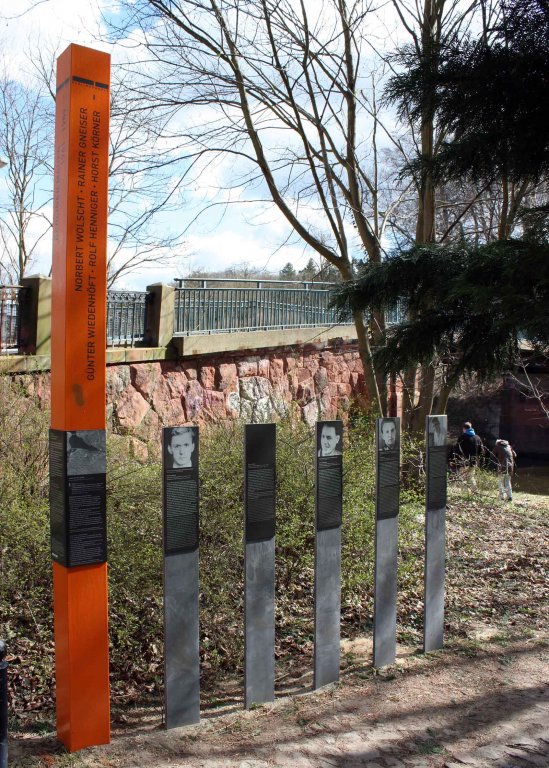born on January 10, 1944
drowned on July 28, 1964
in the Havel River
on the outer ring between Potsdam-Babelsberg and Berlin-Zehlendorf
Gneiser, Rainer
Rainer Gneiser was born on January 10, 1944 in Kreuzburg, Silesia. He was the son of Wilhelm Gneiser and his wife, Ruth, and had an older sister. After being expelled from Silesia, which fell to Poland after the Second World War, the family fled to an aunt in Freiberg, Saxony. Rainer Gneiser, who had five siblings, grew up in the Soviet-occupied zone and in East Germany. [19] They probably ended up in Freiberg, Saxony after being expelled from Silesia, which fell to Poland after the Second World War. Rainer Gneiser grew up in the Soviet-occupied zone and in East Germany. He left school after the tenth grade with the secondary school level certificate and completed a technical apprenticeship. In the spring of 1962, at the age of 18, he tried for the first time to flee from the walled-in East German state. He had wanted to reach the West via the Baltic Sea, but was arrested on April 16, 1962 for „attempting to illegally exit East Germany" and sentenced by the Freiberg district court to ten months in prison. [20] After serving his sentence he returned to Freiberg but was still determined to go to the West. A friend of Rainer Gneiser stated many years later that he had told him back then that under no circumstances did he want to stay in East Germany. [21] He found a like-minded friend in Norbert Wolscht, who was the same age and whom he had known since his school days. The two had apparently been planning and preparing their escape through the Havel River from Potsdam to West Berlin since the summer of 1963. [22] A year later, equipped with oxygen tanks and diving suits, they embarked on their plan. They drowned on the night of July 28, 1964 under unexplained circumstances. [23]
Norbert Wolscht was found the same day, but Rainer Gneiser remained missing for several days. His body was not found until August 5. Members of Border Regiment 48 on duty in this area pulled his body out of the Havel River at the Babelsberger embankment. [24] According to information from the East German border troops, he was found in Tiefen See, a section of the Havel situated between Potsdam and Babelsberg. The corpse, „identified as Rainer Gneiser from Freiberg/Sa. G., was wearing self-made diving equipment." [25] The East German border troops also noted what the deceased was carrying on him: In addition to the diving equipment with oxygen bottles and a breathing filter, there were a compass, watch, flashlight and a waterproof pouch containing Rainer Gneiser’s identity card, military card and employment book. [26] On August 18, 1964, Rainer Gneiser was buried at the Donatsfriedhof in Freiberg, the same cemetery where his friend Norbert Wolscht had been buried two weeks earlier. The obituary that his parents placed in the local newspaper stated that „he died in a tragic accident in Potsdam." The mortician had assured the father that his son had not suffered any gunshot wounds. According to his brother Klaus, the gravestone was not allowed to contain either the first name nor the birth and death dates of Rainer Gneiser. [27]
Christine Brecht
Norbert Wolscht was found the same day, but Rainer Gneiser remained missing for several days. His body was not found until August 5. Members of Border Regiment 48 on duty in this area pulled his body out of the Havel River at the Babelsberger embankment. [24] According to information from the East German border troops, he was found in Tiefen See, a section of the Havel situated between Potsdam and Babelsberg. The corpse, „identified as Rainer Gneiser from Freiberg/Sa. G., was wearing self-made diving equipment." [25] The East German border troops also noted what the deceased was carrying on him: In addition to the diving equipment with oxygen bottles and a breathing filter, there were a compass, watch, flashlight and a waterproof pouch containing Rainer Gneiser’s identity card, military card and employment book. [26] On August 18, 1964, Rainer Gneiser was buried at the Donatsfriedhof in Freiberg, the same cemetery where his friend Norbert Wolscht had been buried two weeks earlier. The obituary that his parents placed in the local newspaper stated that „he died in a tragic accident in Potsdam." The mortician had assured the father that his son had not suffered any gunshot wounds. According to his brother Klaus, the gravestone was not allowed to contain either the first name nor the birth and death dates of Rainer Gneiser. [27]
Christine Brecht



![Rainer Gneiser, drowned in the Berlin border waters: Obituary [August 1964] Rainer Gneiser, drowned in the Berlin border waters: Obituary [August 1964]](/cache/images/4/178134-3x2-article1200.jpg?B24F2)
![Rainer Gneiser, drowned in the Berlin border waters: Obituary [August 1964] Rainer Gneiser, drowned in the Berlin border waters: Obituary [August 1964]](/cache/images/4/178134-3x2-bildergalerie300x200.jpg?607DE)